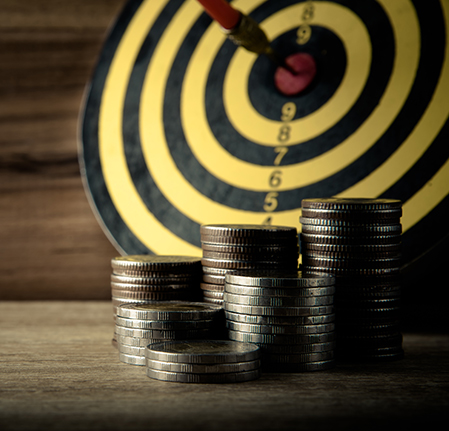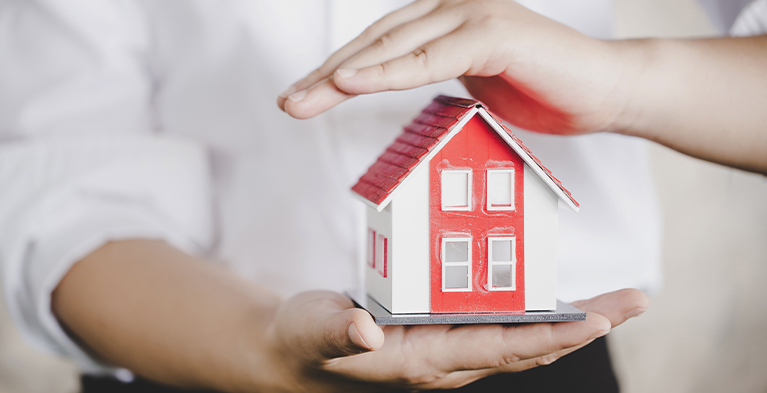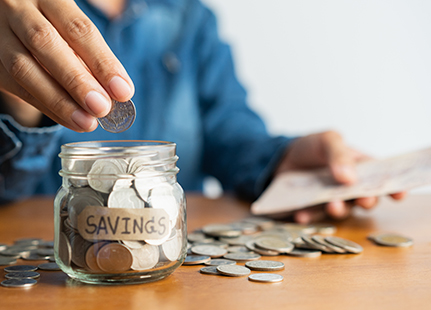Towards a better future: Building up savings amid COVID-19
April 29, 2021 | by HC Mutual

Our way of life has changed drastically because of the pandemic. As a nation, we have discovered and endured unprecedented challenges, risks, and uncertainties. Financially, COVID-19 has also underscored the importance of planning and saving.
Beyond taking care and providing for your family during these difficult times, building up savings ensures a better future for you. Tomorrow brings new opportunities, and enough preparation can give you and your loved ones the best chance to seize them. To help you get started on your savings or achieving your financial goals during this pandemic, we’ve prepared a few tips for you.



1
Track your expenses
and your income.
The first step to saving is reviewing, understanding, and evaluating your current cash flow and financial capacity. Ask yourself: Where is your money going? What are you spending on the most? How much are you earning at present? Are you receiving any financial assistance?
2
Set goals. Work through them one at a time.
Building up savings during this pandemic is a long game. Start by listing down short-term and long-term financial goals that you can slowly work through, one by one, within a set timeline—no need to rush. For a more detailed know-how on setting goals and putting them into action, check out our guide to creating doable financial plans here.
3
Utilise payment
holidays.
Give yourself breathing space and ease the financial stress of the pandemic by seeking assistance where possible. Many financial institutions like HC Mutual provide payment holidays for loans and other financial services in case of emergencies. Check your utilities, mortgage, or active loans if it is possible to work out an arrangement for you.
Start saving for the future today.
HC Mutual offers its members the KayaMo Saver’s Plan—a hassle-free way to build up savings and put your financial goals within reach.
- As low as P101 per payday
- Flexible savings plans of 3, 5, or 7 years
- Access to the KayaMo Cash Loan – This way, you can have the means to address your immediate financial needs without dipping into your savings.
4
Prioritise the
essentials.
Online shops and cashless transactions have made it easier to spend money. While it is good to treat yourself once in a while, keep your shopping to a minimum and focus on securing essentials first.
5
Reallocate
your funds
With the nationwide push to stay at home for safety, online classes, and—for some
individuals—the work-from-home setup, a portion of your budget can be added to your savings and emergency funds.
Final Thoughts
Despite the fear and struggles caused by COVID-19, all hope is not lost. You can still look forward to a better tomorrow and ensure that your loved ones can have a future with careful planning, good saving habits, and financial safety nets.
SHARE
Related Posts





Understanding Financial Literacy





From “I do” to “We’re expecting”:





Save Money for Sudden Expenses






















